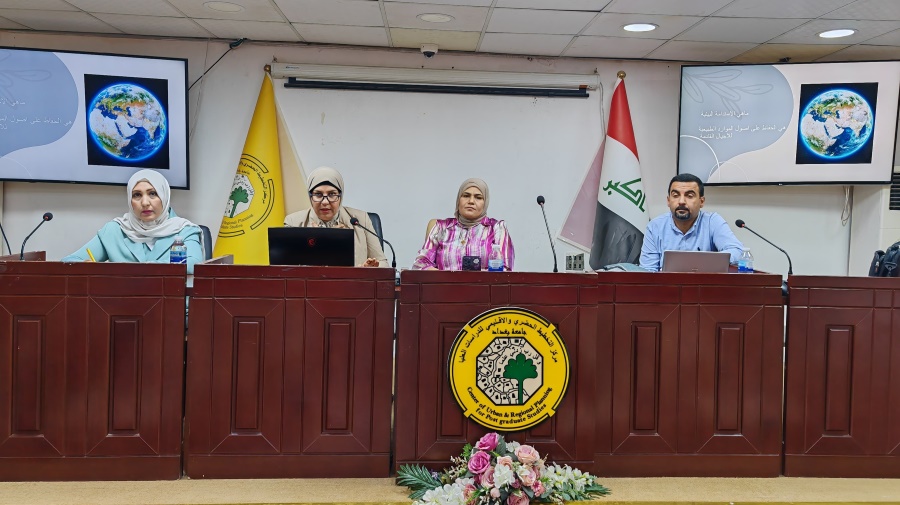The Women’s Affairs Unit, in cooperation with the Continuing Education Unit at the Center of Urban and Regional Planning for Postgraduate Studies at the University of Baghdad, held a training workshop entitled (The Role of Women in the Sustainable Environment and the Use of Renewable Energy), delivered by a group of the center’s professors, in the presence of the Dean of the Center, Professor Dr. Kareem Hassan Alwan, and a number of the center’s professors and employees. The lecturer at the center, Professor Dr. Nada Khalifa, began by discussing the harms of environmental pollution and the environmental spot that appeared in the sky of the capital, Baghdad, in light of the requirements of environmental safety to preserve future generations by relying on environmental balance, biological diversity, and the rational use of resources through individual behavior and environmental awareness, in addition to investing in renewable energy such as solar energy, wind, water, and others, as well as sustainable agriculture and urban agriculture, which supports local products and encourages agriculture in the country.
Assistant Professor Dr. Suad Jaber also presented the topic of recycling and sorting organic and inorganic waste and food waste, nylon, rubber and paper, as well as recycling electronic waste, in addition to agricultural waste to produce soil such as peat moss soil, pointing out the importance of urban agriculture in homes and investing in green spaces in homes in conjunction with rationalizing water use. For his part, Assistant Professor Ayoub Hassan pointed out the importance of activating renewable energy technologies and abandoning the usual user such as electric power generators and vehicle exhausts by using electric cars and activating smart public transportation to reduce congestion and emissions. The importance of biological filtration of water and others was also emphasized. The workshop recommended the importance of saving energy and water, sorting waste, reducing the use of products with excess packaging, and encouraging agriculture. It is also necessary to share information that contributes to advancing the concepts of sustainability with family and friends and spreading this culture to preserve the environment and the health of future generations.
